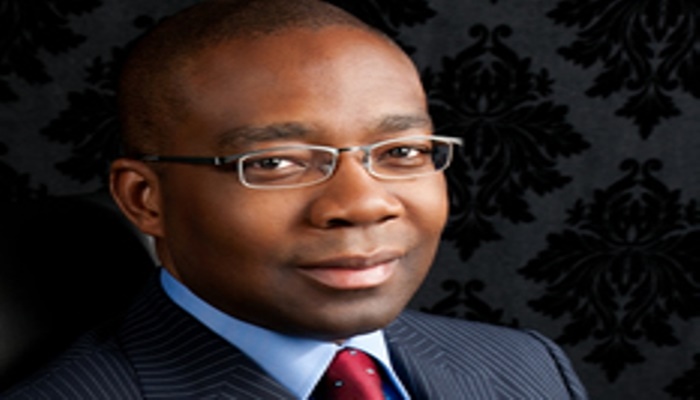NSE Group’s income declines by 33% to$.46bn in 2016
• Holds 56th AGM on Monday
The Nigerian Stock Exchange (NSE) Group recorded a total income decline of 33 per cent to N4.46 billion for the year ended 31st December, 2016 even as The Exchange’s made a profit after tax of N27.45 million for the review period.
The Exchange will hold its 56th Annual General Meeting on Monday, September 25, 2017, at the Stock Exchange House, in Lagos where its audited financial statements will be presented.
According to its audited financial statement, The Exchange’s main income which is transaction fees, fell by 37 per cent to N1.63 billion even as its listing fees declined by 41 percent to N813 million.
Commenting on the performance for the year in the account, The NSE CEO, Mr Oscar Onyema, noted that the NSE Group demonstrated resilience through the economic and market downturn.
He said the group’s profitability was further evidenced by a low debt capital structure and liquid balance sheet, adding that as a reassuring indication of the NSE’s ability to fund its strategic growth ambitious and remain competitive going into the future.
He said the total income of the Group which declined 33 percent to N4.46 billion was as a result of investors’ reaction to prolonged macroeconomic uncertainty.
For the Exchange, he said “Top line income streams were impacted during the year, being transaction fees which fell 37 percent to N1.63 billion, and listing fees which declined by 41 percent to N813 million. This culminated in a negative year-end performance for The Exchange of N599 million.”
Onyema says: “These figures mask some encouraging strategic shifts in our business, as Management intensified efforts to diversify the NSE’s revenue streams.
“We saw the strongest results of this in our market services income, which has grown by 63% since we embarked on our new five-year strategy in 2014, rising from less than 3% of The Exchange’s total revenue mix to 9% (N415Mn) in 2016.
“This growth is a direct result of our commitment to flexibly meet our customers’ evolving needs for data and information products.”
On the outlook for 2017, Onyema stated that going by the IMF’s most recent forecast, the Nigerian economy is expected to emerge from recession to grow 0.8 per cent in 2017.
“This projection presents a positive outlook for the NSE in the coming year, as we anticipate the reallocation of assets to the frontier and emerging markets.
“Any potential market rebound is critically dependent on the ability of government and regulators to implement policies that provide stability to the marketplace and enhance investor confidence.”
“The Exchange remains committed to engagement with market stakeholders, government and the private sector to explore synergies that can emerge from complementary actions in both policy development and implementation.”
The President of the Exchange, Mr Aigboje Aig-Imoukhuede announced the conclusion of his tenure as President at the local bourse in his statement in the annual report of the NSE.
“As I conclude my tenure as President of the National Council of the Nigerian Stock Exchange, it is with a great sense of humility and fulfilment that I reflect upon three memorable and fulfilling years of service in this prestigious role.”
“When I came into office in 2014, I pledged that the NSE would strive to operate at a level comparable to our peers in more advanced economies. I did this with the understanding that the correlation between world-class capital markets and high-performing economies is very strong.
“My view, then and now is that as a flag bearer of global best practice and in its unique position as the nation’s leading capital market platform, the NSE would be a beacon and rallying point for other stakeholders to come together and accelerate Nigeria’s transition from frontier to emerging capital market status.”
Reflecting on the performance of the exchange in the 2016 financial year, he said the performance for the year was impacted negatively by the country’s worsening operating environment.
“Activities slowed down considerably and trading volumes, liquidity and market velocity declined to near all-time lows, it is against this backdrop that The Exchange generated revenues of N4.46bn, down 31 per cent from the previous year, reflecting bearish sentiments prevalent in the market in 2016 and recorded a deficit of N599mn for the period,” he said.




